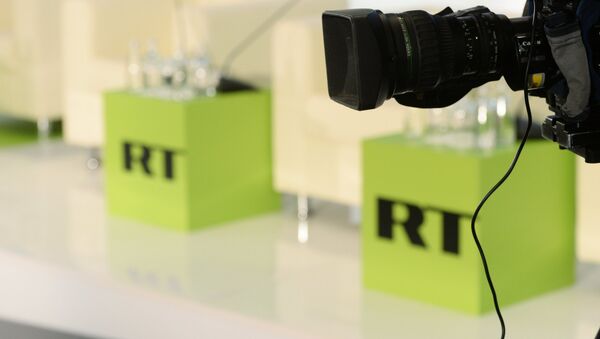“The interesting thing about this report is that it is only conclusions, not evidence or even a statement of a case. The very beginning of the report says ‘sorry, we can’t show you any of the evidence.’ The case that they make, the conclusions they arrive at are that Sputnik and RT provide platforms for voices other than that coming out of the mainstream media, that they view the mainstream media’s treatment of Trump as biased, that they published materials that created unfavorable feelings towards Clinton, such as the WikiLeaks releases,” Don DeBar said.
“What Sputnik and the RT are really accused of is doing journalism, muckraking, taking materials for the public to make up their own minds about.”
When asked why it seems that nobody cared about the actual content of the emails of Hillary Clinton’s campaign manager John Podesta, which contain self-confessions of criminal activity, about the Democratic National Committee (DNC) suppressing Bernie Sanders’ campaign, and many other things besides, Don DeBar said that nobody actually denied that these things had happened.
“But those of us who were raised here with the belief that a free press is essential to the functioning of a democracy look favorably as hell on it when someone says something we didn’t know about people running for office,” he added.
Some of the Podesta emails shed light on Hillary Clinton’s improper use of the charitable foundation, her paid speeches at Goldman Sachs where she was less critical of Wall Street banks than she had been on the campaign trail.
Other emails showed Clinton criticizing environmental activists and supporting hydraulic fracturing, which is a method of gas mining fraught with danger to the environment.
The Democrats described the hacks as an attempt to undermine Hillary Clinton's campaign and boost support for Donald Trump.
“It’s a real possibility that they (the DNC) had absolutely no security, so I think that [all the talk about the alleged Russian meddling in the US election] is just a distraction from the fact that these are authentic emails that show criminal activity by the campaign of a presidential candidate, by the Democratic National Committee, by a whole host of players that are either government officials or would-be government officials, and that the press is no part of this criminal activity at all,” Don DeBar said.
The declassified report released by US intelligence community on Friday accuses the Russian media of influencing the American public during the 2016 presidential race.
However, it appears that material that was thought to provide evidence was compiled in December 2012, right after the reelection of Barack Obama.
Notably, the report focuses on television shows and interviews that took place four years before Trump was elected, and well before he was even a politician.
WikiLeaks derided the report in a tweet by saying that the document, "had the curious disclaimer that it was based on watching TV and reading Tweets."
Have you heard the news? Sign up to our Telegram channel and we'll keep you up to speed!




